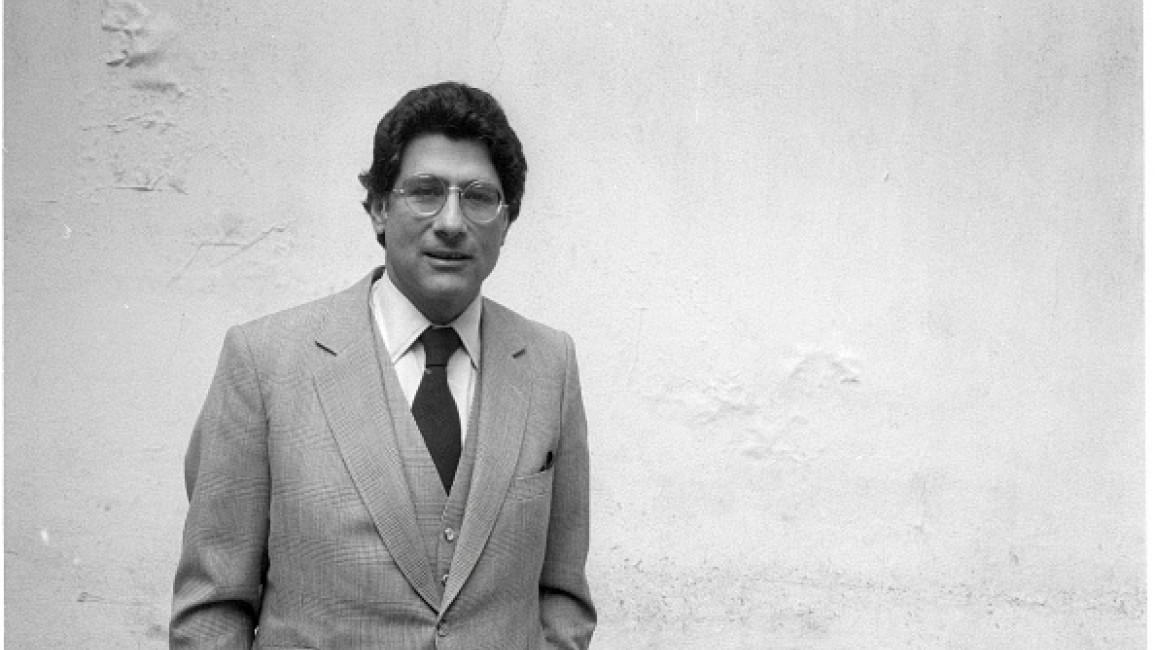New York Times apologises for misidentifying Palestinian Christian scholar Edward Said as 'Muslim'
The New York Times has issued an apology after it misidentified revered Palestinian academic Edward Said as a Muslim.
The US newspaper published the mishap in an obituary on Milton Viorst, a journalist and a writer who specialised in covering the Middle East.
Viorst wrote in The New Yorker, among other publications, and died on 9 December aged 92.
In its article published on Saturday, The New York Times originally wrote: "Mr. Viorst received criticism from Muslim scholars like Edward Said, the Columbia University professor who was a leading champion of the Palestinian cause".
Said, who is considered a leading pioneer of Palestinian academia in the West, was a Christian.
The NYT’s mistake prompted criticism from activists and journalists alike, who slammed the publication for conflating Arabs and Muslims, and for attempting to gain "sympathy points" for Voirst, who was often panned by Said.
The New York Times casually turning what is arguably the most famous Christian Palestinian after Jesus into a Muslim just to garner sympathy for this “victim of criticism” is peak Orientalism https://t.co/mXvsqernuQ pic.twitter.com/ZQIjEv0urc
— Farah-Silvana Kanaan (@farahkanaan) December 18, 2022
Beirut-based journalist Farah-Silvana Kanaan said: "The New York Times casually turning what is arguably the most famous Christian Palestinian after Jesus into a Muslim just to garner sympathy for this 'victim of criticism' is peak Orientalism."
Sam Haselby, a senior editor at Aeon+Psyche, commented: "Some NYT editors still can't tell the difference between Arab and Muslim. Hey @nytimes, Edward Said was not a Muslim and I think what you meant was that Milton Viorst was the object of Said's criticism not the "victim".
The publication later removed the "Muslim" description and issued an apology at the bottom of the article acknowledging the mistake.
Imagine being the New York times, having all the resources, and you still run an article that says that Edward Said was Muslim. Imagine being a human being who can read and not know this 😭😭 pic.twitter.com/2sBzYfiQTz
— Ouissal Harize| وصال حريز (@OuissalHarize) December 18, 2022
Said had criticised Viorst for eschewing Orientalist ignorance in his work, and for "racial highhandedness from a journalist whose credentials to make such judgments about the Arabs are not immediately apparent or available", as he had previously praised "the legacy" of the late King Hussein of Jordan.
Viorst was also lambasted by other scholars for being over-reliant on Western perceptions of the Arab world in his work.
In 1999, Said and Viorst engaged in a heated literary spat.
Said, who was born in Jerusalem, in what was then-called Mandatory Palestine in 1935, is regarded worldwide as a visionary academic, cultural critic and acclaimed author whose notable works include 'Orientalism' and 'Culture and Imperialism'.
Said was also a literature professor at Columbia University, and advocated for the establishment of a Palestinian state, as well as the right to return.


![Minnesota Tim Walz is working to court Muslim voters. [Getty]](/sites/default/files/styles/image_684x385/public/2169747529.jpeg?h=a5f2f23a&itok=b63Wif2V)




![Israeli officials are considering exiling Yahya Sinwar to Sudan as part of a deal to end the war [Getty]](/sites/default/files/styles/image_330x185/public/1251837582.jpeg?h=127ba027&itok=ujxSRy_f)
![Debris near Rafic Hariri International Airport [Getty]](/sites/default/files/styles/image_330x185/public/2176162423.jpeg?h=a5f2f23a&itok=MCSK9mkM)
![An Israeli air strike on Jabalia killed teenage journalist Hassan Hamad [Screengrab/X]](/sites/default/files/styles/image_330x185/public/2024-10/hassan%20hamad1.jpg?h=c12e0b96&itok=Rd_dyCVp)